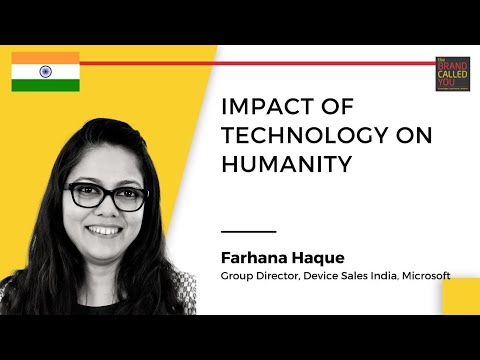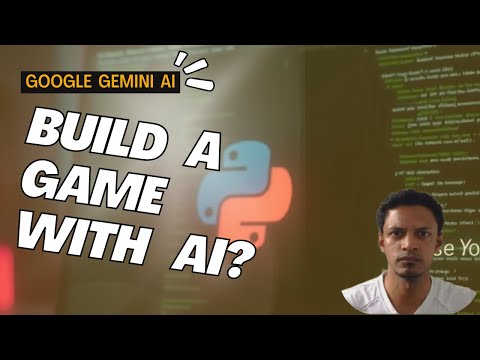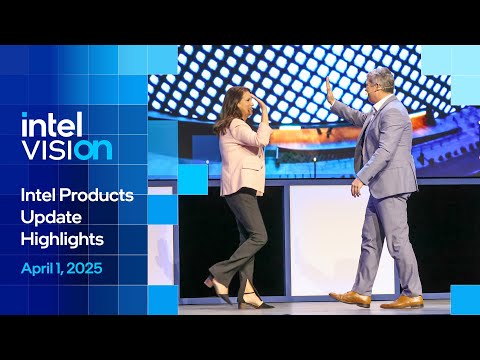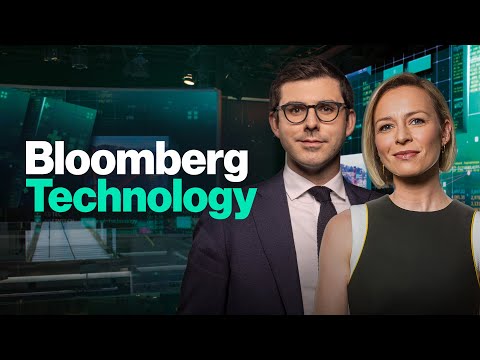Evolution of TECHNOLOGY | Farhana Haque | TBCY

Welcome to another episode of The Brand Called You. A vodcast and podcast show that brings you leadership lessons, knowledge, experience and wisdom from hundreds of successful individuals from around the world. I am your host, Ashutosh Garg and today I'm delighted to bring you a conversation with a very, very accomplished and senior technology leader from India, Farhana Haque. Farhana, welcome to the show.
Thank you so much, Ashutosh. Happy to be here. Thank you. Farhana works for Microsoft. She is a Group Director for Device Sales in India. She's earlier worked with Vodafone, Infosys and IBM, and she is on the advisory board of FICCI empowering women. FICCI is the Federation of Indian chambers of commerce, and industry for those who don't know what FICCI is. So before I start talking to you about
Microsoft, what was your motivation to select technology as a career? I think I've always been more inclined towards technology, it's always been there. And obviously, the time when we were growing up, it wasn't preferred. The way we see technology was just beginning to shoot out right, and Infosys was just formed and TCS was there. So I think the concept of finding out how things work, I've always been very
curious child as I've told and how things work a little more breaking things and figure-fixing them up. So I think that basic trait, as a child got nurtured into being curious. And that's how I got into technology. It wasn't a very thought-through thing, but I just find learning, unlearning, then learning. Very interesting. Yes. That's how I came about. I like the way you say it in our time, because by that extension, as they would say. When you've little kids at home, make you feel. Absolutely not. So tell me about the work you do as a group director
for Device Sales in India at Microsoft. So, it's very interesting, it's a very interesting time in the world where we talk a lot about cloud, right. And at Microsoft, we say something. And it's there in a mission statement, enabling every person and organization in the world to do more. So it's we talking about doing
more at the edge, and the cloud. So a lot of people talk about a lot of the cloud. So Microsoft devices team works more on developing the edge, right? Where we talk about how do we work with our partner ecosystem, to ensure you have those solutions, which can enable you to do more, which can empower you to do more. So we work with a lot of OEM partners in solutions, which will help develop the edge solutions. So for our viewers and listeners, Farhana help us understand what is the meaning of the edge? Sometimes you forget that some terms are not commonly used. Think about think of, I'll go back to My Vodafone days of IoT and think about a smart car. Okay, there and now
you've seen all these ads of apps where you can find your car, assuming right, so now how do you find the car? Because there is something in the car which helps you share the location to your phone. So what is this something is called edge so it is the final point or the point from where you consume your information or resubmit information that's your edge. So it's the edge of the world, edge.
So maybe in simpler terms, this would be where at the point where Microsoft becomes a B2C. If I take a B2B example, if I take a B2C It's your PC, your laptop is an edge, right? In your laptop, you're doing a lot of work, you have software but you need security at that aspect because that's your world right in the current scheme of things. So that's for B2C, even B2B, your laptop is one example of an edge for B2B it will be all your sensors, meter readings, your Starbucks coffee machines, so it can be different connotations. So the edge can have different looks and shapes and forms and can be different elements can be like a said laptop, meter reading, meter to a car to a coffee machine to a smartwatch can mean anything. Okay, so what you're doing explaining to me and I'm sorry, I'm being a little dense on this. But when I saw the designation device sales, I thought you were talking about
some of your hardware devices. But what you're saying is the software that is running multiple devices. So Microsoft works on the edge in two broad areas, right. One is where we work with our partners, to where they develop the hardware, and we support them with the software, which goes on the hardware. And then there's this other aspect, which is our own Microsoft hardware, which is your surface, which is the Xbox and the works, right? So we do both.
Very interesting. So, you know, there are technology companies and technology companies. Microsoft is a global technology company from the US, we've got a whole lot of Indian technology companies. How are some of these major technology companies putting India on the Global Map? I think India's unique strength of talent, I think the way we and it's evident if you see the amount of Indians doing really well in technology everywhere in the world. But I think the core strength is the way we when we grew up the emphasis of math and science. Very early on, our engineering colleges our even basic schools, right, our curriculum is very focused on math and science. And I think that talent pool is expanding. And I'm not
saying that other countries don't, but we just had a little bit ahead because the focus was so much on it. And so I think talent is one aspect. The other aspect is, as a country, we very diverse, language, capabilities, skills. We are very diverse from a Bharat to India, like you said, the urban versus rural. And because of this diversity, there's a real richness in the solutions that we can bring to the team, right, the products that can be created. Because when you make something when you develop something which can cater to the 1 billion odd people we have in the country that can cater to every because you've taken a little bit of every need into consideration. So I think I would call these two things where
technology companies prefer, like, can leverage a lot. A, diversity of skills and experiences and ,B talent availability of that. Fascinating. So you know, Farhana, Microsoft is what I would call an incredibly successful product company. I mean, look at the incredible amount of products that are coming out of Microsoft, starting with the simple, the Microsoft Office Suite. And yet, despite such large
Indian tech companies, we don't have enough products coming out. What do you think is the reason why Indian companies are not investing in developing global products? No, I think we are. It's also a matter of timing. Right, Ashutosh it's a matter of just look at the startups. Look at the amount of unicorns, look at the technology companies, technology startups which have come. So I think it's just a matter of the timing. So I think all the large companies obviously have been there for some time. So I think
things if you talk about, there was this book of Thomas Friedman on globalization, right, the walls coming down. So I think that was the start of globalization. So that was just two days back, not very long back. So I think from there, then you talk about all the startups which have come up and in the country, the way it is develop, the way India has been on the map, it is already on the map. But first, it was only about exporting talent. Now, if you've seen the companies or importing talent, you have so many people leaving, global companies are coming and joining the Indian startup. So I think
it's just a matter of time since we have products but even with us, we've created so many products, which have been created with Microsoft, with India in the mind and then kind of gone global. So yeah. Well said. So my next question is on on the pandemic, you know, coming close to two years now, working from home, starting from office, back again, working from home, how has the pandemic thrown up so many more opportunities for the digital economy? And for particularly for someone like you who is working, if I can use the term on the edge. It's driven me on the edge. But like Satya said, and I think he said in the blog and
he sent it said, Ignite, this hour is not going back. We can call it the new normal, but the way we work is not going to go back for pre 2020. Right. It's going to be a hybrid work, okay? It's going to be a hybrid level. It's going to be a hybrid world, right. And one thing we realized during the pandemic was, it works, right? If I take only India, the last 10-15 years of my career has been only in India. And I think our perception
as a sales leader used to always be that you can't close a deal unless you're sitting in front of the customer, or have that cup of coffee talking to him, we can't close, you can't do sale say that. But we did. You can't work in the channel, I used to remember my channel leader telling me that unless I go to the channel partner in the interiors of the market, I'm not going to go to close a deal. But we did. They are the ones who drive the market right in the channel, right. So I think the pandemic has taught us multiple things, the pandemic has taught us one that people evolve, and the evolution of people and then it's not a function of the education level over there in a tier two cities or tier three city or a big city or a big country, it's a function of the need and how they want to get to the need, that's one. Second, where technology has supported in this evolution. So they will be a hybrid world, which is there to say, we can't roll back time and say, okay, even if offices start now, it's acceptable to have a call taken from home, it's acceptable to have your kid, your dog, your parent coming in and budging in middle of a meeting. So things and our level of acceptabilities
have changed significantly in the last few years, and is going to stay, not going to go back. And as a tech leader, who's been working so much in the digital space. If you were to look at, say a crystal ball in front of you, what would you say are some of your top predictions for the digital economy? Digital Economy, I have always believed and even before because the last couple of actually the last decade of my years, I've worked so much on digital transformation across IBM, Vodafone and Microsoft is digital is the thing that can act, that can bridge the divides between rural and urban, that can bridge the divide between have been and privileged, underprivileged, privileged, that can bridge the divide between capability and ability. So I think digital has always been the center and the foundation, which can take this wheel forward. What has happened in the last few years is that journey has exponentially increased. So I wouldn't say whatever we doing, or whatever we will do,
and I don't have a crystal ball, or Ashutosh but what we will do in the future is something very radically different from what we were doing. Okay. All these conversations were happening. The timing has just got rushed. So we see now and the way in heartening conversations on telemedicine, right, on companies focusing on remote medicines, telemedicine has been there for ages. But the pandemic and these two years of lockdown. And the way it shook most of us. Actually, it impacted everyone's life. It was not struct, it was
not limited to the you know, you're not vaccinated, everyone's life got impacted by the pandemic, is the people have now taken a conscious call to do more in that space. To provide a platform to be able to get doctors to access to people who don't have basic primary health care or basic health. So I think what I foresee is a lot more cause, a lot more tech technology to help a lot more in causes which impact human life, be it education, be it healthcare, be it financial, security in these aspects. Technology to help more in enabling larger companies like manufacturing and automation and an industrial in automating a lot of stuff and not making it using the people resources to do a bit more higher-end work. And the menial ones to be more automated and leveraging technology there. So I think everything that we predicted would happen, but the timelines
have got more. So one more question about for technology, and then I move to another segment. Farhana, everyone's talking of artificial intelligence, machine-learning, blockchains, robotics, drones. I want to ask you as a tech leader, what in your opinion, will all these technology improvements impact the common individual? Oh, it's my favorite subject. Okay. IoT and AI and machine learning, I'm extremely passionate about it. I always and this is something when people ask me, you know, how
is it going to impact human life? Is it going to take away work? No, it isn't. It's like, people evolve, right? We evolved. Darwin's theory of evolution, we evolved. So technology also evolves. Think about consumer, okay, let's take a core example. Everything is touchless. All that is AI, right. And all that is IoT enabled, something as basic as that. So
it is going to make your life more secure, it is going to make your life more easy, it is going to make your life more safe in a way. So I think different aspects of it. From a consumer perspective, from an industrial perspective, obviously, the profitability improves, your ability to do more improve. So there are various examples. So I've always believed that AI, machine learning, IoT, all of it obviously is interlinked to each other robotics, all of it is linked. It's not a
they're not siloed technologies, then they are maybe little mutually exclusive in a way but collectively exhaustive, right. So I think all of it comes together, will make our life easier. And the way of making life easier could be very different. Obviously medicine is top
of mind for everyone is imagine if you have basic BP checking machines or diabetes checking, or OXImeters, which now we would physically but if you are living alone, your parents are living alone. And if you have the IoT enabled oximeter or sugar machine or a BP machine, which could transmit to their primary caregiver or primary doctor, the oxygen level is low, how much it would have helped in COVID cases. Right. So I think that's the beauty of this new technology. Now, I would call it new technologies, these technologies, they will make the life much, much more simpler and easier. Obviously, there
are challenges, there are roadblocks, there will be concerns, which needs to be addressed. Fascinating. So one more question, as you were talking came to my mind. There's also a lot of debate on issues of privacy. You know, every time I say something on, you know, on my phone, something pops up here, something pops up there, you know, on different format, different platforms. I'd love to get your perspective on how does this privacy matter, work? I mean, Microsoft does strongly believe that, as our worlds between personal and professional have got merged and fungible, there's no better word for it fungible, whatever, that whoever we work with, for as partners, or the software layer has to be extremely secure.
You use the same laptop for work, you use the same laptop for watching Netflix, or Amazon or YouTube, right? You have the same phone where you see your emails, and your phone has a premium picture for kids and everything. So the worlds emerge. So your technology has to now be smart enough to identify threats and security and take action, not wait for you to react, take action, just take action proactively. That's one. Second thing, privacy is something where like, we have something we have in our teams and solutions, in Microsoft Office 365, we have solutions where you have ability to monitor what the child is seeing, or secure. So I think when
it comes to that, as grownups, we have an option in all our technology, even including a phone have to switch off to say, not to share your location, not to share data. So I think a little bit of awareness from consumers to understand that saying accept all button, it's easier to do it but accept all read through it, read the script, because the words are getting merged. A little bit ownership and a lot of more ownership with the companies which provide the technology and the solutions do ensure that what they build takes that security, privacy into consideration specially when we go on scale. Because in India, we do everything you do on scale. Right. So yeah.
Let me move now to a couple of other questions that I have time for. You do a lot of work in supporting STEM education for women and the girl chat. Tell me more about what you do. So I mentor a lot of women who are interested to do technology. So it could be different through different foundations, personal professional, through different activities. So I'm on a lot of startups where I'm mentoring them. A lot of these foundations where you're mentoring woman and girl and anyone in the space of technology education.
It's driven from the thought that when I did engineering, I think we were a couple of people who did engineering and more so I think, I was the first Muslim girl in my engineering college. So it got me thinking that and it was okay for me. But my profs found very fascinating because it was always told me, you know, you're the first Muslim girl who's coming and I'm like, why is it even a point to discuss? Absolutely, I was going to ask you that. I found very weird. We grew up in different parts of the world. So for us, we are amalgamation of culture, religions, everything kind of stuff. So I think for me, that was a very weird kind of question that why is it being pointed out, but it must be something which is not normal for them. So yeah. So that's one. Second thing, I did engineering
in Civil, I wanted to meet construction companies, but I did I remember doing my and I won't name the company, but I was doing my internship with them. And I wanted to go on the field. And they looked at me and they said, we can't take you to the field unit. You help us make presentations. And I'm like, I didn't do civil engineering to do presentations. But like I said. Maybe they
want to look at PowerPoint, as you know, the platform to use. Absolutely. I think it was a premonition that I should come and join Microsoft. But, that got me thinking a lot on STEM education, that got a lot of thinking a lot about there should be more and more women doing engineering, science and maths. I love maths. I wanted at one period of time when I was conflicted between careers I wanted between doing Masters and all wanted to be an IAS with maths as a subject. So I love maths as much. So that got me thinking. And then I've been mentoring a lot of women. I'm so impressed with the maturity of the girls nowadays of the current generation. I just spoke last
week to a girl who's in her second year engineering. And she was talking to me of how to draft her career in technology companies and I'm like you're in second year of engineering. I was just focused on clearing semester. But I think that's the thing, right? I think that's all. It's not at all any effort, honestly, Ashutosh. It's just a patient here to listen a little words of advice, which we do it normally. So I think so. And then obviously investing,
for example, when this pandemic hit, we worked extensively for Teach for India, to provide them devices and M 365. And solutions to help Children's Study and ensure that the study is not broken. So yeah. Fascinating. My last question to you, you're on the advisory board of FICCI empowering women. Tell me a little bit about what you do here. So it's, again, it's taking that step of mentoring into much more structured environment. It is about talking to different companies and advising them a lot of the woman entrepreneurs. And there's FICCI where the being on the board helps then there is this
another startup foundation in Bangalore, which again does the same thing, which focuses on women entrepreneurs only. So I think being on these boards, help those people have access to us to guide them of how to go about in their careers. That's one. Second thing is when you starting your own company, you kind of lost of how to go about you know, what is the final? How do you build a business case? What is your product positioning? How are you going to pitch for it, who are you going to pitch for it? Who are the right people you need to know, how do you build an ecosystem of network, I think what we do is to ensure that we give these people that platform and that access. Fascinating. Farhana on that note, thank you so much. Thank you for talking to me about so many new things that you are doing at Microsoft that you're leading. Thank you for telling me about Edge and the cloud or outer space, if I can use the term but you know, talking to you has been so knowledgeable for me. I mean, I have only heard lots of these terms of
artificial intelligence, machine learning, IoT, etc, etc. But you actually made a lot of these things come alive for us. And thank you for telling me about the work you're doing to mentor a lot of women. Thank you. Thank you for having me here and it's been an absolute pleasure talking to you, Ashutosh. Thank you for listening to The Brand Called You, videocast and podcast. A platform that brings your knowledge, experience and wisdom of hundreds of successful individuals from around the world. Do visit our website, www.tbcy.in to watch and listen to the stories of
many more individuals. You can also follow us on YouTube, Facebook, Instagram and Twitter. Just search for The Brand Called You
2022-01-11 13:11


